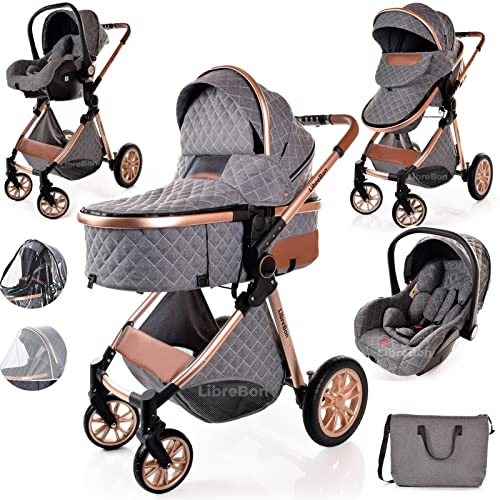Welcoming a newborn into the world is a joyous occasion that comes with an important task: selecting the right equipment to care for your baby. Among the essential items parents need to consider is a pram for their newborn—a decision that’s more complex than it might first appear. With the myriad of pram options available today, including variations in design, functionality, and safety features, choosing the right one can feel overwhelming. This article delves into the key factors to consider when buying a pram for a newborn, the benefits they provide, and answers to frequently asked questions to help parents navigate this important purchase.
Newborns, up until around six months of age, have distinct physiological needs that a pram must address. Unlike older babies, newborns don’t have the strength or muscle control to sit upright, requiring specialized prams that prioritize comfort, safety, and a flat or near-flat lying position. Here are the key features that make prams more suitable for newborns:

Selecting the right pram involves balancing features, safety, practicality, and comfort. Here’s an in-depth breakdown of what to consider before making your purchase:
Above all, the safety of your newborn is paramount. Key safety features to look for include:
Babies spend plenty of time in their prams, so comfort is critical:
The best pram is one that’s easy to handle and fits seamlessly into your lifestyle:
If you live in a city apartment, a compact pram that folds easily may be ideal. On the other hand, if you’re located in the suburbs with wide streets and car storage, a larger pram may work well.
Many prams come with features that allow them to double pram and pushchair as strollers, car seats, or bassinets:
The price range of prams varies widely from budget-friendly options under £150 to high-end models exceeding £1,000. Decide on a budget, but prioritize quality and safety, as these features are non-negotiable.
Parents have different lifestyles, and thankfully, there is a pram suited for everyone. Here are the most common types and their unique applications:
Ideal for day-to-day use, these prams are sturdy and long-lasting. They’re often equipped with various comfort features suitable for newborns.
For parents who value portability, these models are lightweight and foldable, perfect for travel.
These versatile prams include car seat attachments, making it convenient to transition between car rides and strolling.
Designed for adventurous parents, these come with larger wheels and superior suspension systems to handle rough terrains like trails or uneven city pavements.
Investing in a quality pram offers several benefits for both babies and parents:
Some strollers are designed for newborns, but many aren’t. Ensure the stroller offers a fully reclined seat or a bassinet attachment to safely accommodate a newborn.
While the price depends on your budget and needs, it’s essential not to compromise on safety, comfort, and durability. A pram in the £300-£600 range often offers a good balance of quality and features.
A pram is designed specifically for newborns, featuring a flat base or carrycot for lying down. A stroller is often used for older babies or toddlers who can sit upright.
Second-hand prams can be safe if they are in good condition and meet modern safety standards. Be sure to inspect for recalls, damaged frames, or outdated features.
Regularly clean the seat fabric, check the wheels for wear and tear, and inspect the brake systems for functionality. Follow the manufacturer’s guidelines for maintenance.
Choosing the perfect pram for a newborn requires careful thought to ensure the baby’s safety, comfort, and development. With so many features and styles available, focus on what works for your baby’s specific needs and your family’s lifestyle. Investing in a high-quality pram tailored to a newborn’s requirements not only ensures peace of mind but also enhances the beautiful experience of raising your child. Equipped with this guide, parents can now shop smartly and confidently as they embark on the beautiful journey of parenthood.
No Data Found!

